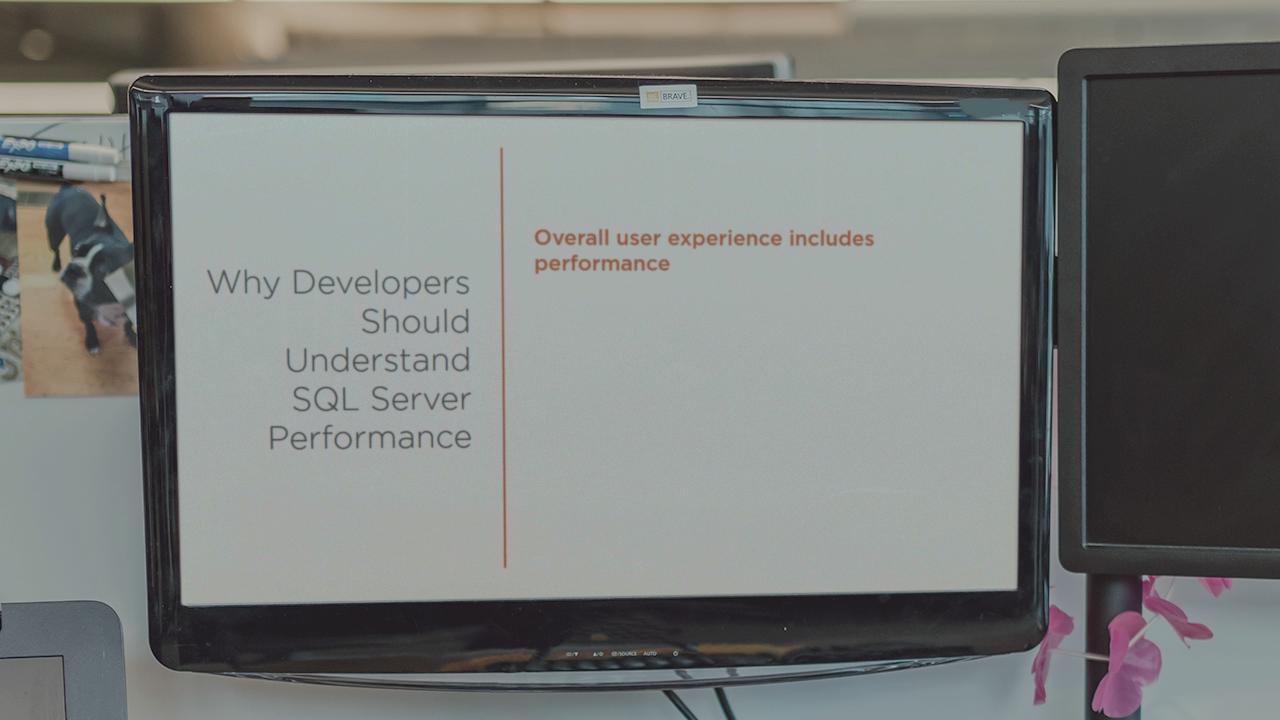- Course
What Every Developer Should Know About SQL Server Performance
This course is designed to teach developers the fundamentals of SQL Server performance, showing you the tools you will need to troubleshoot and resolve SQL Server performance problems.

- Course
What Every Developer Should Know About SQL Server Performance
This course is designed to teach developers the fundamentals of SQL Server performance, showing you the tools you will need to troubleshoot and resolve SQL Server performance problems.
Get started today
Access this course and other top-rated tech content with one of our business plans.
Try this course for free
Access this course and other top-rated tech content with one of our individual plans.
This course is included in the libraries shown below:
- Core Tech
What you'll learn
As a developer, SQL Server performance can be tricky. In this course, What Every Developer Should Know About SQL Server Performance, you will see how to diagnose what is happening with a slow running SQL statement and what strategies are available to make these statements run faster. First, you will be shown how developers should use database indexes throughout their database, including what columns should be indexed and how to make sure a SQL statement will use an index. Next, you'll go over how some built in diagnostic tools in SQL Server can help you find performance issues in your application, including how to identify the slowest running SQL in your application. Then, you will see how to trace all of the SQL that your application is generating inside of SQL Server and how to understand this data. Finally, you'll take a look at practices you can implement inside of your application to insure the best performance possible. By the end of this course, you as an application developer will have the tools you need to troubleshoot performance problems you may encounter when using SQL Server.
What Every Developer Should Know About SQL Server Performance
-
Version Check | 15s
-
Introduction | 2m 10s
-
Understanding How SQL Server Will Execute a SQL Statement | 3m 20s
-
Reading and Interpreting an Execution Plan for a SQL Statement | 8m 43s
-
Getting Execution Statistics for a SQL Statement | 4m 18s
-
Improving Statement Performance by Adding an Index | 4m 28s
-
Before and After Performance Comparison | 1m 23s
-
Rewriting SQL Statements for Improved Performance | 5m 6s
-
Common Execution Plan Operations | 4m 32s
-
Summary | 3m 1s

